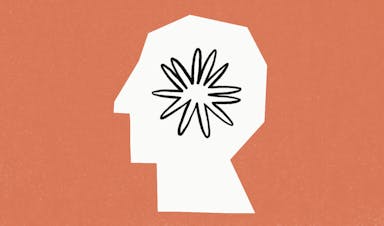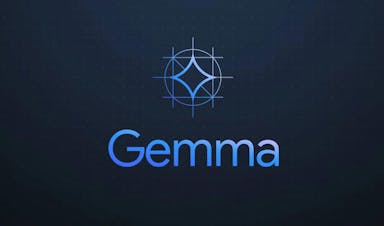Financing At-Home Reproductive Tests — Lessons from Modern Fertility’s CEO

"The 'aha!' moment was really just being open about this experience with my friends and just realizing that any woman I was talking to about infertility wanted more information."
This story is part of our new 'What She Said' series with Femstreet. Our goal is to amplify the powerful voices of female founders, investors and operators with a startup story to tell. Have an idea for a story? Share it with us here.
Afton Vechery is the CEO of Modern Fertility, which she started with her co-founder Carly Leahy to make women’s reproductive health information more accessible and personalized, earlier in life. The company offers $159 at-home blood test kits that measure a women’s levels for eight hormones associated with fertility, along with a one-on-one phone consultation with a nurse. Modern Fertility essentially took the expensive blood work done in fertility clinics (Afton paid $1,500 out of pocket for one of these tests) and made it directly available to women so that more people could be clued into their fertility before their infertility.
The company has raised $22 million in funding to date, and counts First Round, Maveron, Union Square Ventures and Kirsten Green’s Forerunner Ventures among its backers. Today, 62 percent of the company’s equity is owned by women. Afton previously worked as a product manager at 23andMe and in private equity, which helped inform the financial strategies she used while building Modern Fertility. Here’s how she did it:
On her *aha* moment: I joined a healthcare private equity firm out of school and my job was to identify private sectors of healthcare that were growing and had some consolidation potential. Within women’s health, I started looking at fertility. I ended up leading the diligence for an investment in a network of IVF clinics and labs, and it was through that process that I learned the business of infertility and the science of infertility. The emotional aspect of it stuck with me. As part of that process, I had to go talk to women who were in fertility clinics receiving treatment.
While I was at 23andMe, I realized that I was waiting later in life to start my own family and remembered the baseline tests I learned about in private equity. I set out to get those tests done, but my ob/gyn told me that you have to actively try and fail to conceive to get them. If your insurance happens to cover infertility, then and only then, after nine to ten months of trying, you can get the testing covered. When I finally got the results back it was just so empowering to have conversations with my doctor, my partner and myself about the whole process. That wasn’t even the 'aha!' moment. The 'aha!' moment was really just being open about this experience with my friends and just realizing that any woman I was talking to about infertility wanted more information.
On how her private equity background shaped Modern Fertility: I had the opportunity to go into an infertility clinic for a full week because of the network that I had through private equity. I actually shadowed physicians to really understand the space. I think every single founder has the opportunity to really decide their [financial] model. Is it going to be aligned with customers? For me and my co-founder Carly, it was really seeing information as the biggest gap that existed in the space. I think that having that private equity background helped me understand how everything worked within the sector. I was able to take a step back and think — where is the area where we can have the biggest impact? On the flip side of that, when you have a background in finance and you’re trying to build a company, you’re trying to constantly find the problem with every single approach. You combine that with ruthless prioritization to really align on a vision for the world that you want to exist. For us, that was giving women more information about their bodies so they could make the decision that was right for them.
On finding her co-founder, Carly: I knew that I wanted a co-founder. I knew the gaps in my skill set and I wanted someone able to fill those gaps. I’m a total extravert and I also thrive just being in a room with another person. I actually started cofounder dating as part of the process. It was really emotional. I joined all of these founder dating sites and that didn’t work out too well for me. I would actually pay people dollars out of my pocket and put a consulting agreement in place to work on a problem together. I had some friends and friends of friends flying into San Francisco and we would work all weekend to understand what it was like to be in a room together. Carly’s background is in brand, content and the creative side of everything. When we started working together to build the first Modern Fertility experience, it was clear that this was something we could build together. It clicked and she quit her job. I met her through a friend I went to college with.
On her financial-first model for the business: I knew that I would be willing to put my own money into the company. It was a fairly high percentage of my savings. It’s not something I would necessarily recommend. I knew that if I could get that money in and get the business to a certain point, I hypothesized that I would have more success in fundraising. I also knew that I had to fundraise in order to build the company we wanted to build, which was a multi-billion dollar women’s health company. I needed external capital to do that.
I think with my background in private equity, everything was financial model first, which is a strange way to look at things. It was really looking at the total addressable market, using B2C data and building out this pretty high fidelity financial model around the idea. It was really important that I also outlined how we were actually going to make money. We’re in a space that pushes women to procedures that might not be in their best interest. This is where we believe, ethically, the business model needs to be to be aligned with women and I thought through that upfront before going into conversations with investors. I was really transparent about areas in the short term where we might be able to make more money, but that was not how we were going to build a long term company in the space. That initial financial modeling exercise really helped me think through things.
On initial reactions from investors: In the first couple of meetings, investors were just really not understanding what we were trying to tell women. I think so much of the women’s health space and fertility has been around pregnant or not, or your ovulation window, and it was really just this idea that there were other things that you could learn about from your reproductive health. That was an entirely new concept. At first, I had been so seeped in the research and didn’t understand the amount of education that was needed to bring potential investors along.
For me it was like, oh my gosh, this is a huge miss. I just needed to go back and reform the entire deck so there’s a huge chunk that spells out “here’s where we are and here’s how it’s different” five times in five different ways.
The second big piece of feedback was, ‘Let me go ask my partner, wife or daughter or girlfriend about this product.’ What was amazing about our first meeting with Phin Barnes from First Round Capital was that he understood it immediately without having to go out and provide that validation. But there were also women we pitched to who couldn’t see the issues [with the market]. The total spectrum of investors included both sexes that were going through their own journeys and got what we were building off the bat.
On extending investor partnerships beyond capital: Kirsten Green [Forerunner Ventures] has been absolutely amazing to work with. In our initial meeting, she would have ideas [for the business] and I think when you have someone who thinks the same way about the business that you do, it means that you’re aligned and you can use that person to help make the business better. Kirsten’s invested in the biggest brands and companies that are resonating with millennials today. For us, we’re taking fertility and bringing it into mainstream wellness, and she just has so many lessons learned.
On milestones before the next round: In raising our Series A, there were three key things that we’re continuing to focus on. The first is continuing to educate women about Modern Fertility. The second is doubling down and building a better predictor of future fertility. We give an option for our customers to consent to allow their anonymized data to be used in peer reviewed research moving forward to build a better predictor of future fertility than what exists today. We started out with the same exact tests that were in fertility clinics, but made them available at the fraction of the price in an easy to access at-home format. But we can do better. We know that there are other factors like your lifestyle and family history that play a role in fertility, but unlike other conditions of healthcare, this hasn’t been made easily accessible to women in an actionable way. And then the third is new products. Our customers tell us about other things that they’re not getting that they want from us today, so we’re working on building those.
This interview has been edited for length and clarity.
Comments (3)
Kathrin Folkendt
Jonathan
Web designer
Merlin Tornaus
builder
More stories
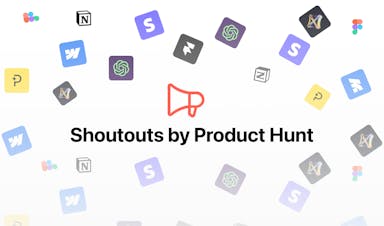
Aaron O'Leary · Announcements · 2 min read
Introducing Shoutouts
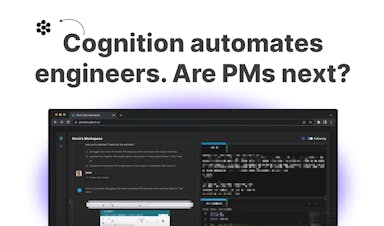
Finn Lobsien · Opinions · 5 min read
Can Devin AI Replace Product Managers?
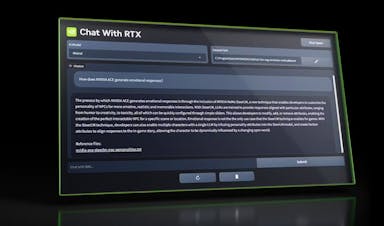
Aaron O'Leary · News · 2 min read
Meet Nvidia's new localized AI chatbot
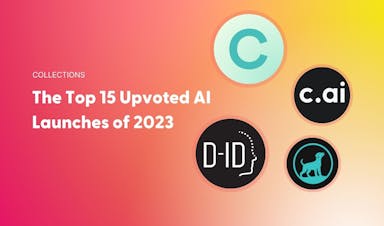
Sarah Wright · News · 2 min read
The top 15 AI products from 2023
